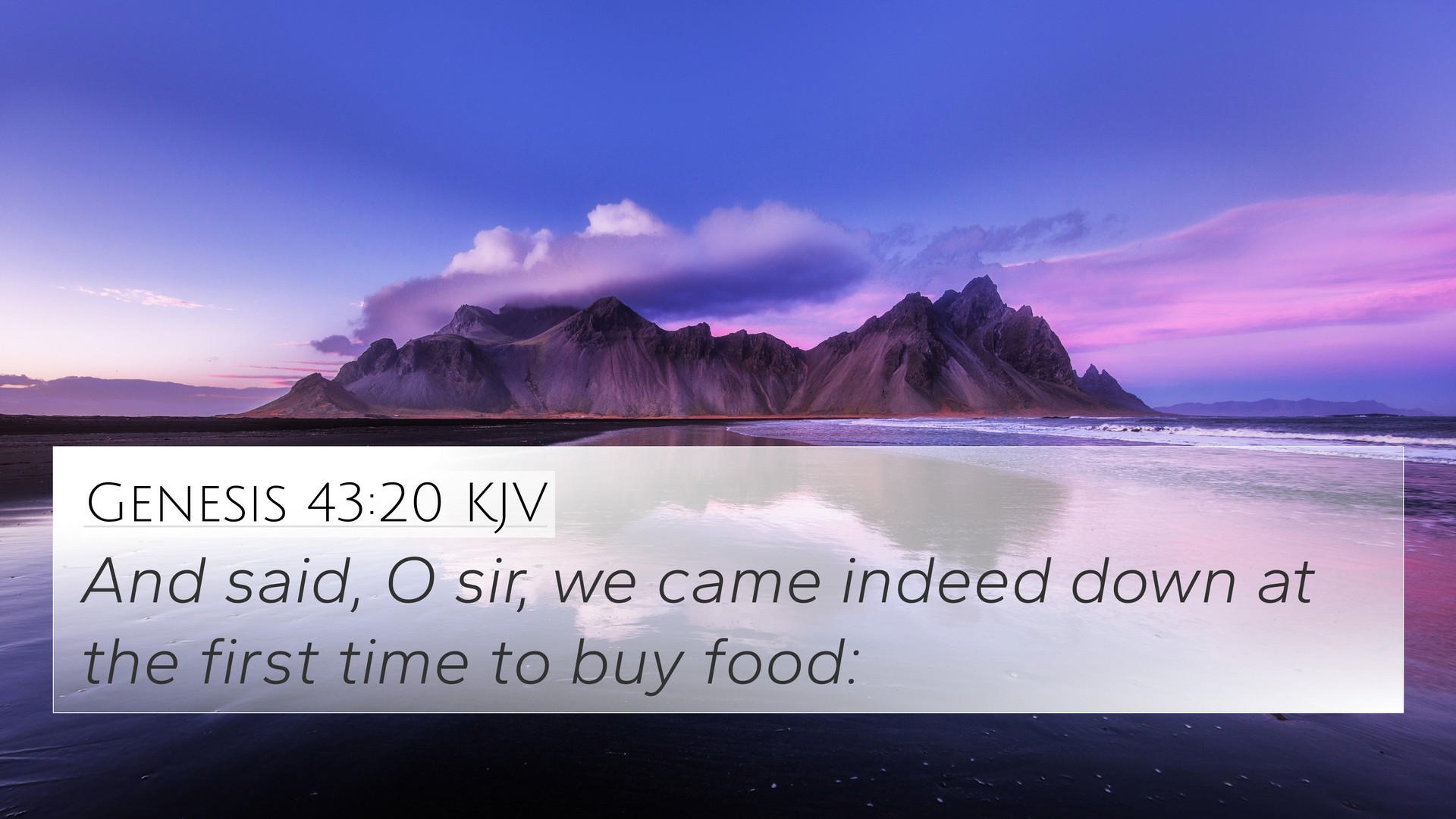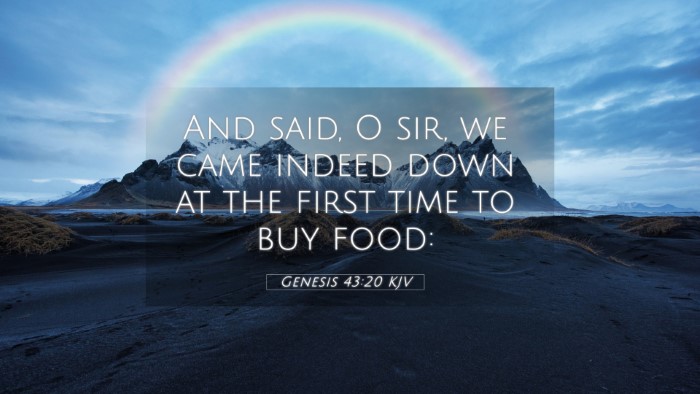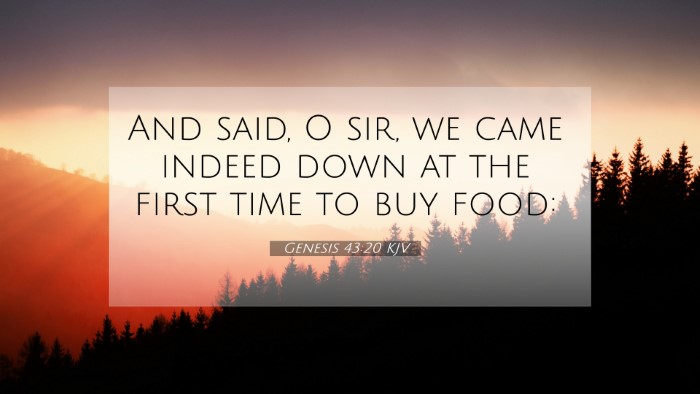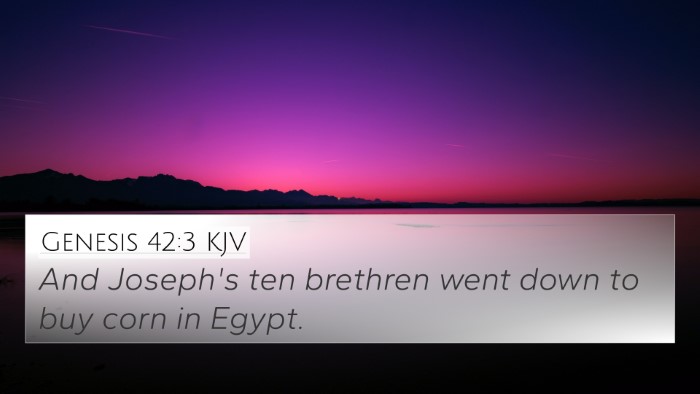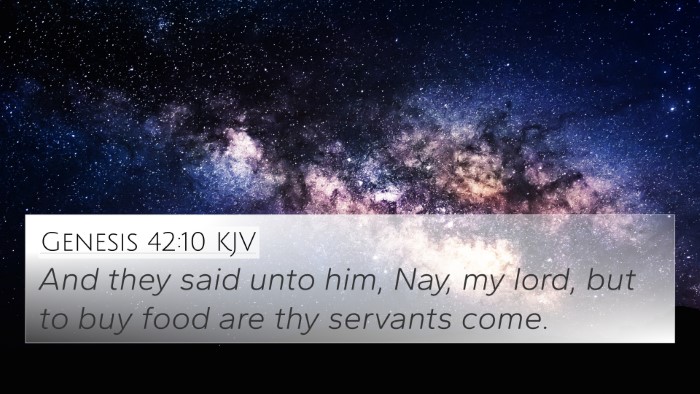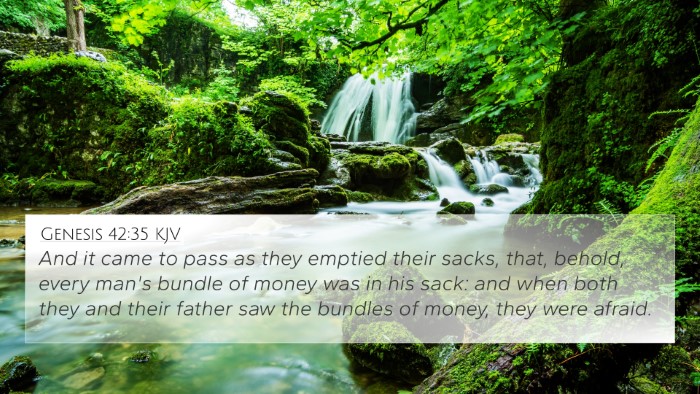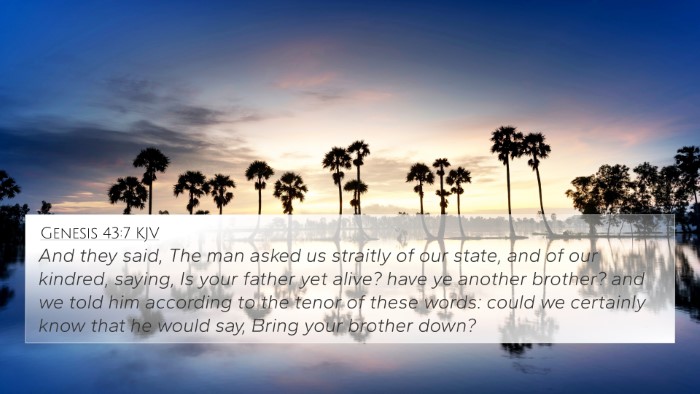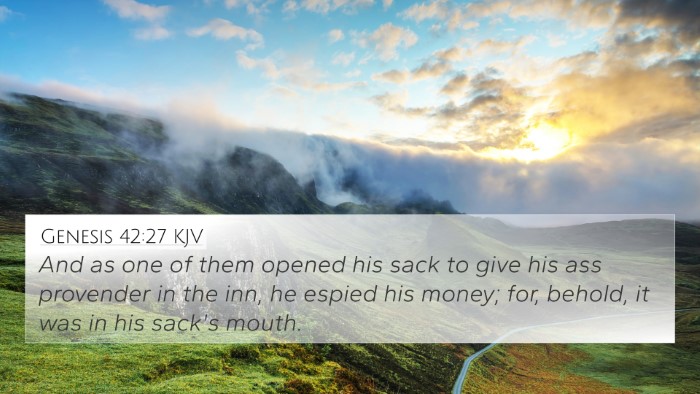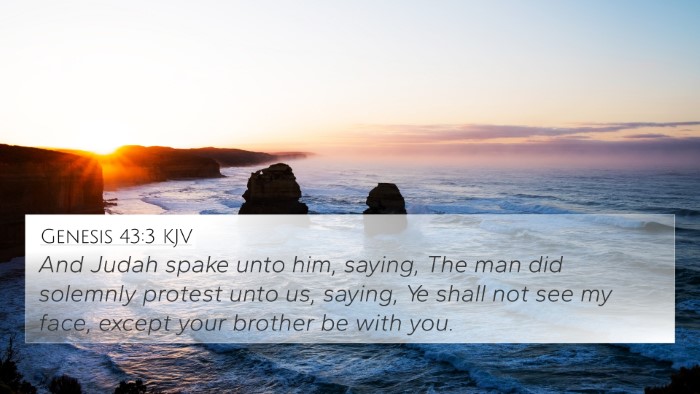Understanding Genesis 43:20
Genesis 43:20 is a verse that unveils the themes of accountability, fear, and divine providence. The context of this verse is rooted in Joseph's interactions with his brothers during a time of famine. Specific insights from public domain commentaries such as Matthew Henry, Albert Barnes, and Adam Clarke shed light on this passage.
Verse Summary
The verse states:
"And said, O sir, we came indeed down at the first time to buy food." In this context, the brothers are addressing Joseph, whom they do not recognize. Their statement reflects their concern and fear regarding the circumstances that brought them to Egypt, expressing an awareness of their past actions and a desire to explain their intentions.
Commentary Insights
-
Matthew Henry's Commentary:
Henry emphasizes the theme of humility and honesty in the brothers' plea. They acknowledge their previous journey's intent was solely for sustenance. Their words reflect a desire to clear their consciences and demonstrate that they are not there for deceitful purposes.
-
Albert Barnes' Commentary:
Barnes discusses the narrative style of this passage, noting the brothers' apprehension as they come face-to-face with Joseph. The emotional weight of their previous actions towards Joseph adds a layer of complexity to their current situation, showcasing their vulnerability.
-
Adam Clarke's Commentary:
Clarke interprets the brothers' statement as an expression of their desperation and need. He highlights the significance of their admission of coming to buy food, showing a physical and spiritual hunger that points towards a deeper need for reconciliation and forgiveness.
Bible Verse Cross-References
Genesis 43:20 connects with several other passages in Scripture that enhance understanding and provide thematic parallels:
- Genesis 42:6 - The brothers' initial journey to Egypt.
- Genesis 37:23-28 - The event of Joseph being sold into slavery.
- Genesis 45:3 - Joseph revealing his identity to his brothers.
- Psalms 32:5 - Acknowledging transgressions leading to forgiveness.
- James 5:16 - The importance of confessing faults to one another.
- Matthew 18:21-22 - The call for forgiveness among brethren.
- Luke 15:11-32 - The parable of the Prodigal Son, highlighting family restoration.
Connections Between Bible Verses
The interconnectedness of Scripture highlights how stories and lessons resonate beyond their particular narratives. Genesis 43:20 can be seen as a precursor to themes of forgiveness and reconciliation found throughout the Bible.
-
Thematic Connections:
This verse invites reflection on how fear and misunderstanding can mar relationships, yet it also shows a path towards redemption through honesty and humility.
-
Inter-Biblical Dialogue:
The brothers' unease is parallel to many biblical figures facing the consequences of their actions, reinforcing the idea that acknowledgment of wrongdoing is a vital step on the path to spiritual healing.
Comparative Bible Verse Analysis
When analyzing Genesis 43:20 comparatively with other verses, we face the compelling narrative of human experience, fear, and the hope for acceptance. It mirrors situations in the New Testament where characters face their past actions and seek redemption.
Cross-Referencing Bible Study Methods
Tools for Bible Cross-Referencing:
To enhance understanding of Genesis 43:20, employing various Bible study tools can provide deeper insights.
These include:
- Bible Concordance for keyword searching.
- Bible Cross-Reference Guide for cross-referencing linked themes.
- Comprehensive Bible Cross-Reference Materials for thematic studies.
Conclusion
In studying Genesis 43:20, we note not only the rich historical context but also the personal reflections it prompts in readers today. Understanding the emotional layers of the brothers' dilemma offers profound insights into themes of guilt, the quest for forgiveness, and the ultimate hope for reconciliation that spans the entirety of biblical literature.
